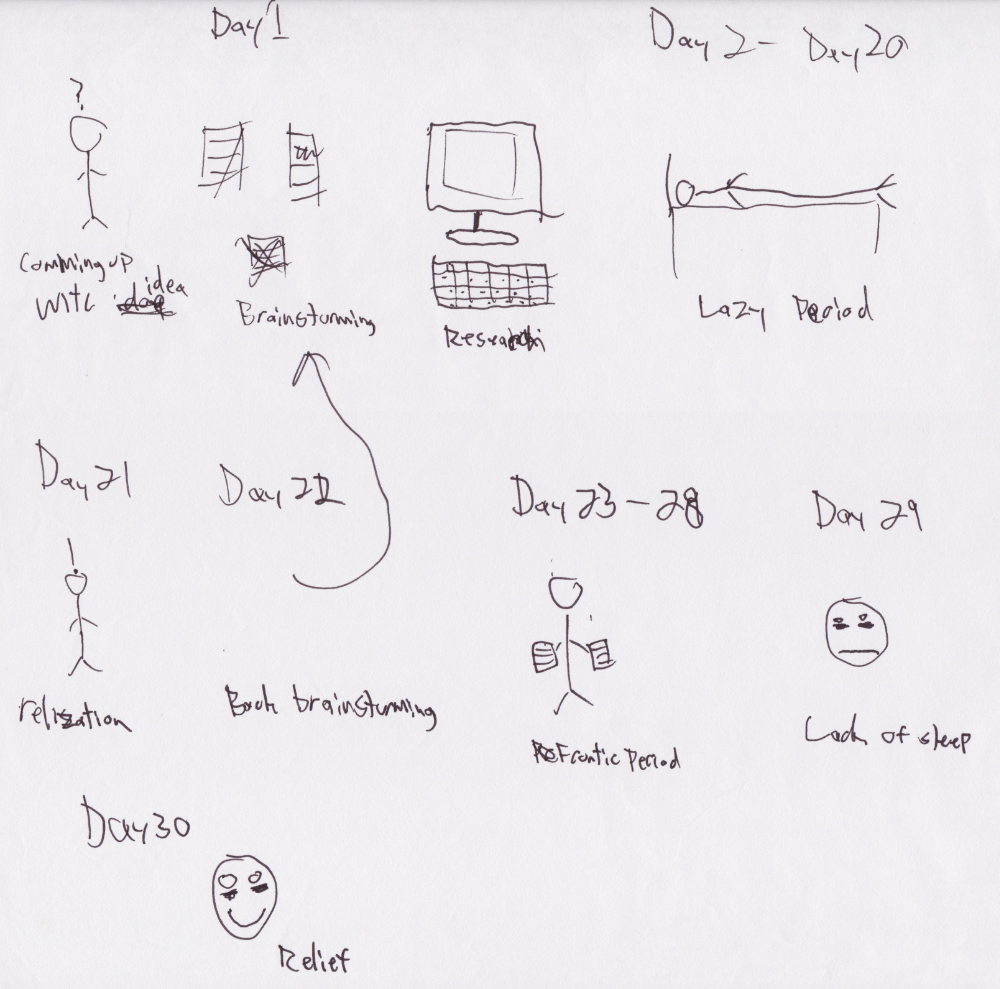A Hunter College student told us about the paper he wrote for his children’s literature class. Like many of the CUNY students we spoke with, this student also expressed frustration and indecision during the beginning of his research process when he was trying to come up with a topic for his paper:
“First I always come up with the idea represented by this stick figure with the question mark. Usually I get the idea, come up with a couple of drafts of it, usually these will all get thrown out at one point or changed up.”
After some brainstorming, the student began to do some research on his topic, starting with the college library website as recommended by his professor:
“The next part was trying to navigate the CUNY website which did run me into about two or three hours worth of a headache followed by another fifteen minutes on Google, where immediately it was the first link.”

Initial research on his paper topic gave way to what this student labeled as the lazy period:
“So this is day one. Come up with the idea, but usually when it’s due on day thirty, thirty days…day two up until about day twenty I will completely forget about it and probably get some rest. Represented here by a stick figure that is here lying down on a bed.”
We heard about this phase in from several students we spoke with. In fat, for student who did some initial research the delay before fully engaging in their paper served as a kind of fallow period, a time when students were still thinking about their research projects even if they weren’t working directly on them.
This student followed the lazy period with a return to brainstorming, research, and finally writing the paper (the frantic period), culminating in the relief he felt when the paper was turned in.